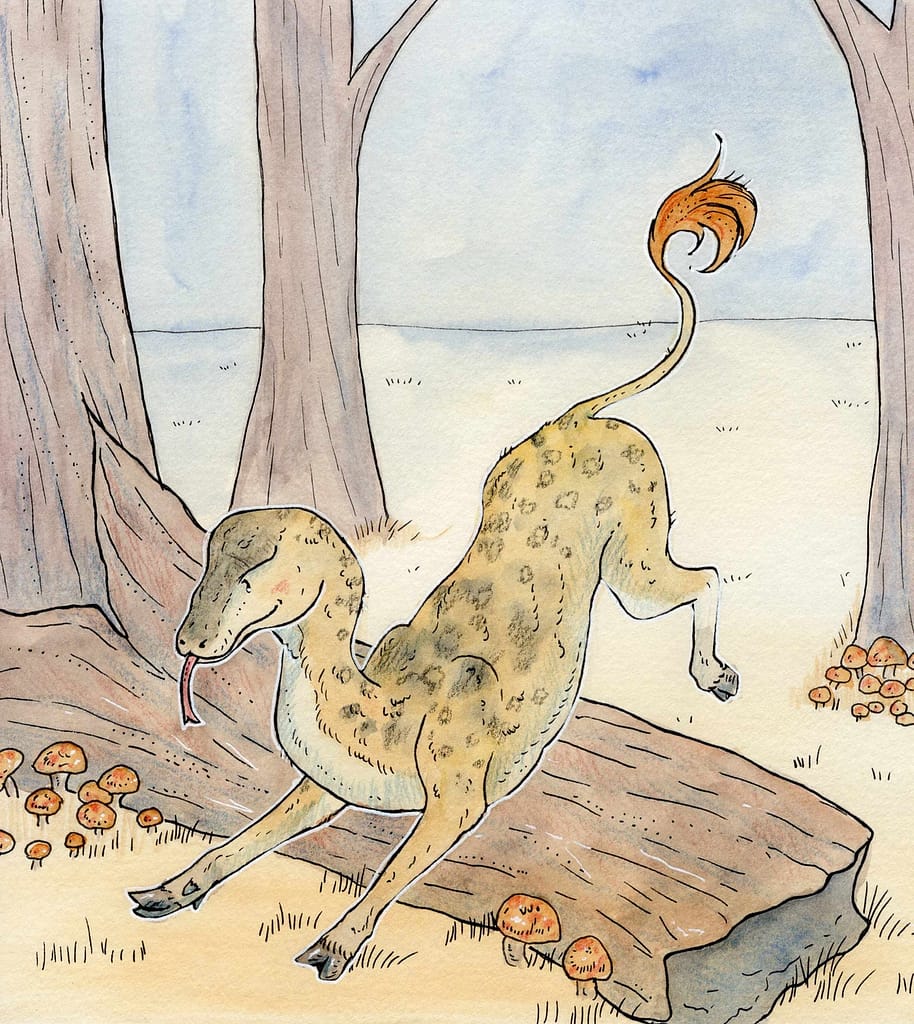With art market season winding down (I have one more on November 18th), I’ll be coming back more frequently to my blog. Lately I’ve been wanting to delve into the nuances of what makes a story a myth, legend, or folktale. This topic is something I’ve been wanting to research and write a bit more about since my artwork has been dealing a lot with creatures from various myths, legends, and folktales.
Why is knowing the difference important in my illustration work?
The past few months I’ve been niching down on what I want to focus on subject-wise. If you’ve seen my portfolio or 1st book then you may guess that I’m focusing more on cryptids and mythical creatures. I’m fascinated with the stories tied to these beasties and so it was important to take a deeper dive into what makes a story a myth, legend, or folktale. I’ll get to cryptozoology in another post!
It’s important to understand the differences in what makes a narrative a myth, legend, or folktale. By knowing the difference, you will understand the context in which a story was created and circulated. It helps to understand other groups of people, what were(are) their values, what was most important to them, what creatures made a lasting impact on them? And one thing that I’ve been most interested in discovering, are the threads between cultures, space, and time that tie us all together as humanity.
What are the similarities?
Myths, legends, and folktales are all forms of storytelling that go way, way back into human history. All three storytelling types probably began as stories told orally and were physically recorded at a later date. Of course, this lends the stories to the game of ‘Telephone’ where, depending on who was retelling the story, they could have slight variances in detail. Myths, legends, and folktales all can contain fantastical creatures as well as exaggerated human(like) characters.
What makes these forms of storytelling different?
Myth
Myths explain how things came to be before humans (civilizations & culture). They usually contained deities or supernatural figures that were involved in creation stories. Mythology helps explain the universe to us humans. Oftentimes they were used to explain natural phenomena (thunderstorms, tsunamis, etc). In Japan, there is a myth about a monstrous catfish, Namazu, who was known to cause earthquakes and tsunamis with a thrash of its mighty tail.
Legend
Legends are stories or groups of stories about a particular person or place. The subjects of legends include saints, historical figures, and historical events or places. One good example of this is the legends surrounding King Arthur and his Knights of the Round Table.

Folktale
Folktales are stories that focus on groups of people on a smaller scale, compared to myths. By smaller groups I’m referring to cities, towns, and other small localities. The main purpose of folktales is to teach morals or lessons. Folktales entail customs, ‘old wives tales’, dances, and even artwork. An example of this would be the old wives’ tale that touching frogs and toads can give you warts! Of course, they don’t give you warts, but you should wash your hands after handling them 🙂
There’s So Much More to Explore!
In conclusion, there is so much more I could delve into when it comes to myths, legends, and folktales. But this brief post will have to do for now 🙂 There is such a wide swath of stories I can explore so for now I will be focusing on a little bit at a time. I plan on not only exploring European-centric stories, but from other parts of our globe. The more I think about this, the more of a great, big undertaking it seems like! The good news is, I won’t ever run out of drawing ideas!
Until next time, and if I don’t pop back in before the New Year… Have a happy holiday season!
In Case You Missed Them:
- My Top 5 Favorite North American Cryptids – my summer hit list
- Things I Learned Self-Publishing my 1st Children’s Book – some crucial things I learned the 1st time around
Sources:
Myth Definition & Meaning – Merriam-Webster
https://mythologyexplained.com/difference-between-mythology-and-folklore/